Published
1 year agoon
By
Ugdiplomat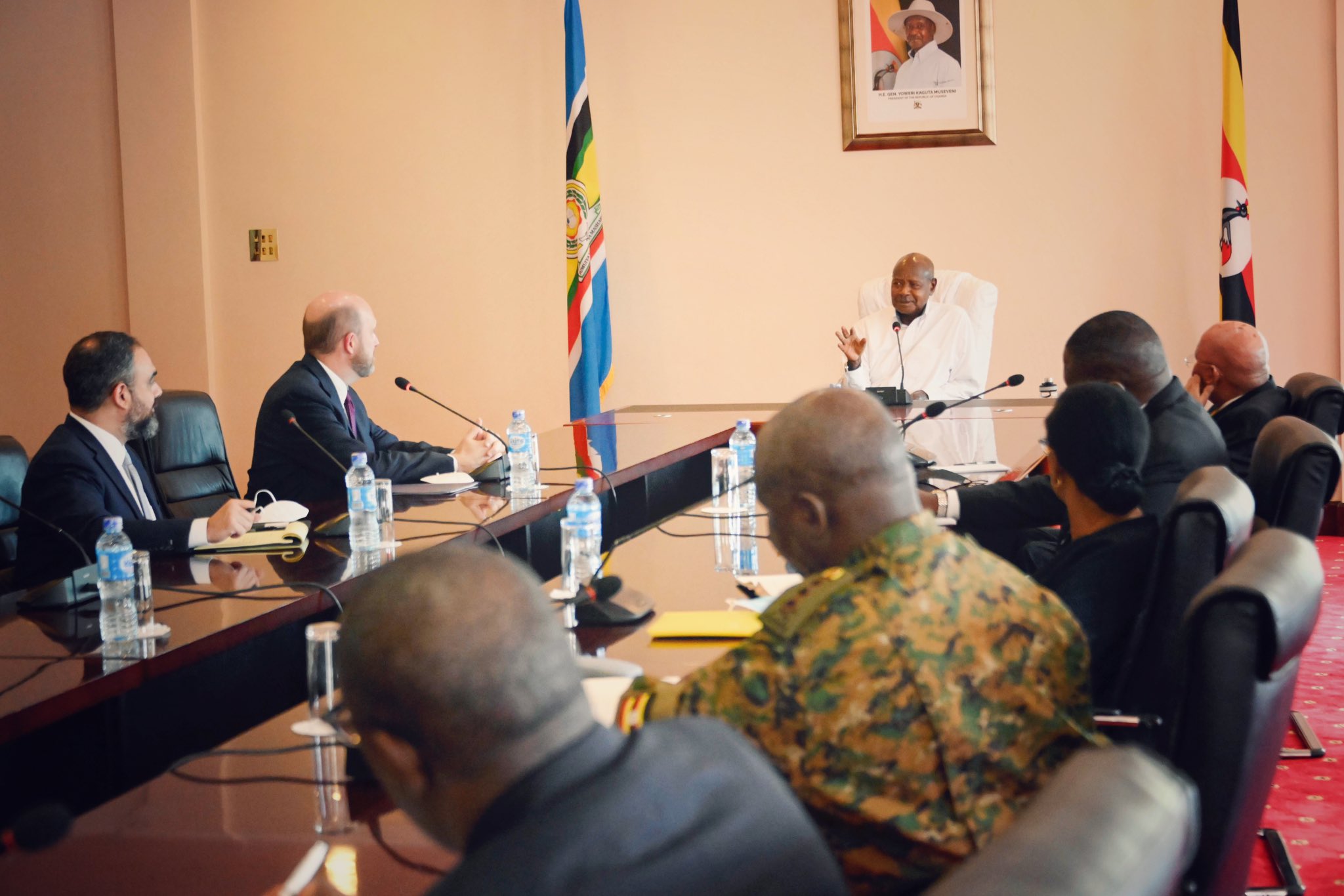
On Thursday, Uganda’s President Yoweri Museveni held a meeting with the US Ambassador to Uganda, H.E William Popp, at State House Entebbe.
During the meeting, they discussed issues crucial for Uganda’s development trajectory and regional stability.
The ambassador was accompanied by officials from the US embassy in Kampala while Foreign Affairs Minister Jejje Odongo, UPDF chiefs and other dignitaries attended the meeting.
“We discussed key issues such as the upcoming census, regional peace, and socio-economic development. I emphasized the need for an inclusive census for informed decision-making,” President Museveni posted on X.
Uganda commenced its 2024 National Housing and Population Census on Friday 10, May 2024.
He however, added, “I also shared my views on fostering peace and security in the region. Additionally, we discussed opportunities in transitioning our population from a rural-based pre-capitalist society to industry and services.”
DETAILS
Although details of the meeting have not been shared in full, President Museveni’s emphasis on fostering peace and security in the region suggests a recognition of the complex geopolitical dynamics and security challenges facing East Africa and the wider great lakes region. The region has experienced various conflicts and security threats, including insurgencies, terrorism, and border disputes. The ADF, a terror group blacklisted by the US continues to operate in eastern Democratic Republic of Congo that borders Uganda.
Uganda launched an operation, Shujaa to hunt down the rebels who have been a menace to both countries causing displacement of hundreds of thousands of people, many of whom have found refuge in Uganda.
In addition, Uganda has historically played a significant role in regional peacekeeping efforts, particularly through its involvement in missions led by the African Union and the United Nations. The country contributes the lions share to the African Transition Mission in Somalia (ATMIS), formerly AMISOM. President Museveni’s comments may reflect Uganda’s continued commitment to contributing to regional stability through diplomatic initiatives, peacekeeping operations, and conflict resolution efforts.
The discussion on fostering peace and security in the region likely opens avenues for collaboration between Uganda and the United States. Given the US’s strategic interests in East Africa and wider great lakes region, including counterterrorism efforts and promoting stability, Ambassador Popp’s engagement with President Museveni signals a mutual interest in addressing regional security challenges through diplomatic dialogue and joint initiatives.
Sources say Museveni is revered in the global corridors of power as the geopolitical custodian of the great lakes region.
Analysts believe President Museveni‘s views on regional peace and security indicate Uganda’s aspirations to continue playing a subtle leadership role in promoting stability and cooperation among neighboring countries. By sharing his perspectives with Ambassador Popp, Museveni, who is chairman of the Non-aligned Movement, is leaving a door open for cooperation with the United States and other international actors for Uganda’s initiatives aimed at enhancing regional peace and security.
CHINA/RUSSIA INFLUENCE IN AFRICA
In meeting with African leaders, western diplomats are seeking to secure partnerships and build alliances with governments on the continent in the hope that this could wad off competition from eastern powers, China and Russia whose influence is heavily felt on the continent. Even though this did not come out of the meeting, it forms part of the bigger goals of the US.
In the sahel region, Russia seems to have succeeded in dethroning France’s stronghold on countries like Mali, Burkina Faso and Niger. All countries have undergone coups.
In Niger, the government ended military cooperation with the US Army with Russian advisors deploying, and there is growing worry in Washington and other European countries that this could be replayed across the continent, hence their need to rump up diplomatic efforts to build ties.


ANALYSIS: Why Brenda Kiconco Is Most Likely To Clinch NRM Youth League Post
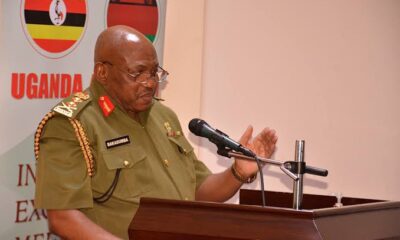

BREAKING: Generals Bakasumba, Kinalwa Elevated in Latest Promotions
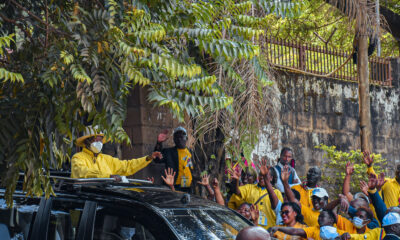

Museveni to Pick NRM Nomination Forms on Saturday for 2026 Flag Bearer, Party Chair
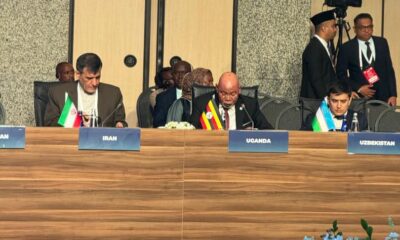

Uganda Condemns Israeli Strikes on Iran, Urges Diplomacy and Dialogue
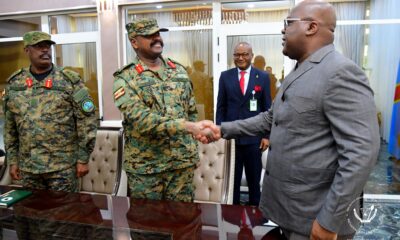

BREAKING: CDF Gen Muhoozi, Tshisekedi Ink MoU To Extend Operation Shujaa Mandate
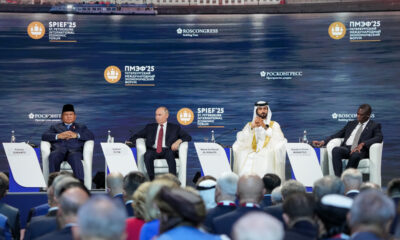

Putin Touts BRICS as Engine of Global Transformation
